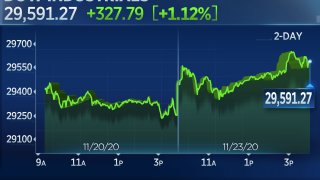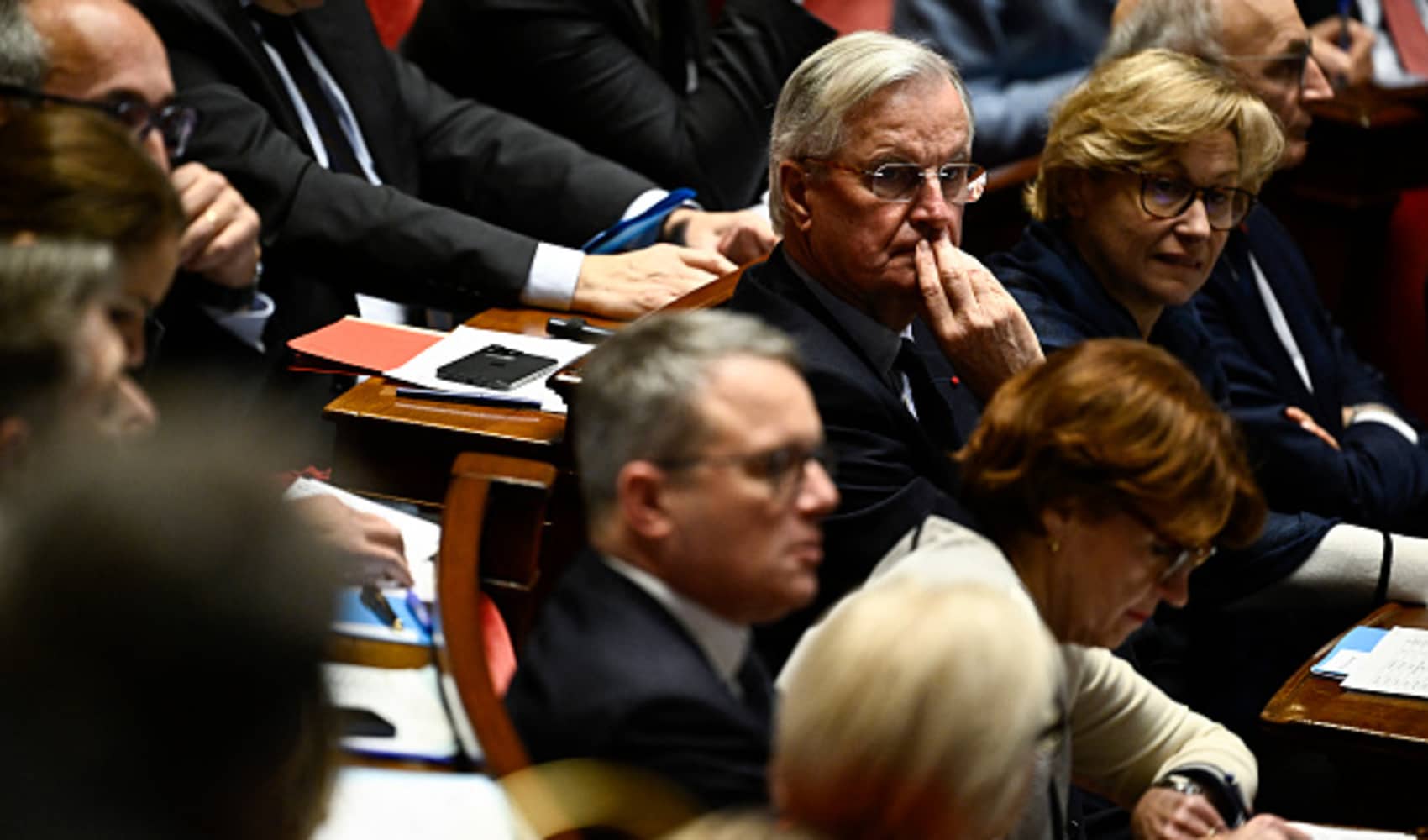
Stocks rose on Monday after AstraZeneca and the University of Oxford said their coronavirus vaccine was up to 90% effective, becoming the third inoculation this month that was revealed to be effective in trial data.
The Dow Jones Industrial Average closed 327.79 points higher, or 1.1%, at 29.591.27. The S&P 500 gained 0.6% to end the day at 3,577.59, and the Nasdaq Composite advanced 0.2% to 11,880.63.
The Dow hit its session high in the final hour of trading amid news that President-elect Joe Biden plans to nominate former Federal Reserve Chair Janet Yellen for Treasury secretary. The Wall Street Journal first reported the pick. CNBC later confirmed the report through sources.
Shares of cruise lines and airlines led the gains on hope distributing these vaccines would reopen the economy and boost travel early next year. Shares of Carnival Corp. added 4.8%, while United Airlines rose 2.6%. Shares of major tech companies struggled, however. Apple dropped nearly 3%, and Netflix slid 2.4%. Facebook, Amazon, Alphabet and Microsoft all posted slight losses.
AstraZeneca said interim analysis showed its vaccine has an average efficacy of 70% with one dosing regimen showing effectiveness of 90%, while the other demonstrating 62% efficacy. This follows late-stage trial data from Pfizer-BioNTech and Moderna showing that their respective Covid-19 vaccines were around 95% effective.
"With three vaccines now showing efficacy at 90%+ and health officials in the U.S. and EU rushing to approve them, the vaccination process is set to commence before the end of the year," wrote Adam Crisafulli of Vital Knowledge. "This vaccine optimism is more than offsetting the very grim near-term transmission/mitigation landscape as cases spike and governments take further action to curb the virus spread."
Money Report
Yellen optimism
Yellen oversaw a solid economic expansion during her term as Fed chair from 2014 to 2018 in the wake of the financial crisis. During that time, rates remained low, and the S&P 500 rose nearly 60%.
Yellen "is a big name, with significant experience highlighted by her time at the Fed," said Alli McCartney of UBS Wealth Management. "I am not surprised markets are reacting favorably as this choice is reassuring, especially with the challenges that lie ahead including avoiding a double dip recession and getting people back to work amidst rising virus cases."
Sentiment was also boosted by strong economic data. IHS Markit said their U.S. manufacturing and services purchasing managers' indexes hit multiyear highs. The flash U.S. services index rose to 57.7, its highest level in more than five years. The manufacturing PMI popped to 56.7, its highest level in over six years.
Meanwhile,, UK Prime Minister Boris Johnson announced Monday the country's national lockdown would end on Dec. 2 with certain conditions in place.
The Dow and S&P 500 were coming off a losing week as Covid-19 cases continue to rise, with the U.S. reporting a record-high spike of more than 195,500 new cases on Friday. Public health officials have warned that Thanksgiving celebrations on Thursday could further exacerbate the outbreak.
Covid cases still rising
A CNBC analysis of Johns Hopkins University data found the seven-day average of daily new U.S. infections has topped 170,000. In total, more than 12 million cases have been confirmed in the U.S., along with 256,803 deaths.
The spike has led to coronavirus-related restrictions in some places. On Thursday, California Gov. Gavin Newsom instituted a "limited Stay at Home Order" on a majority of the state's residents, requiring nonessential work and gatherings to cease between 10 p.m. and 5 a.m. The move followed New York City Mayor Bill de Blasio's decision to close the nation's largest school system amid a jump in cases.
This increase in Covid cases led Goldman Sachs to cut its fourth-quarter GDP forecast along with its economic growth estimate for the first quarter of 2021.
The bank now expects the U.S. economy to grow by 3.5% in the fourth quarter. That's down from a previous forecast of 4.5% annualized growth. In the first quarter of next year, Goldman now sees economic growth of just 1%, down from a previous estimate of 3.5%.
Subscribe to CNBC PRO for exclusive insights and analysis, and live business day programming from around the world.






